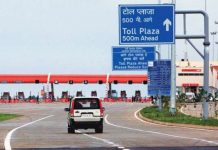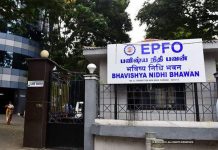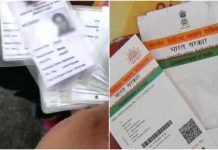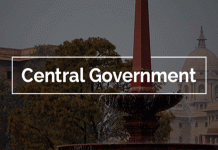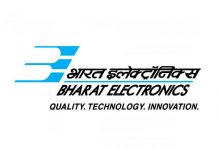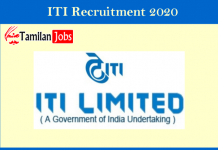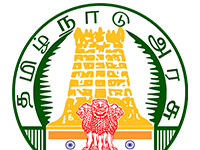PMJAY scheme in Maharashtra: 10 lakh families issued e-cards, fewer hospitals empanelled in remote areas.

Nine months after the rollout of Prime Minister Narendra Modi’s flagship cashless insurance scheme, Pradhan Mantri Jan Arogya Yojana (PMJAY), e-cards to avail it have been issued to 10 lakh people in the Socio-Economic Caste Census (SECC) beneficiary population. This means that coverage under the scheme has reached 2.5 per cent of the total 3.9 crore population (83.7 lakh families) under the SECC.
Data under Right to Information (RTI), accessed by The Indian Express, indicates that a total of 4.17 lakh procedures have been undertaken since PMJAY was launched in September 2018 in Maharashtra. But this data represents the combined total of the PMJAY and the state-run insurance scheme Mahatma Jyotiba Phule Jan Arogya Yojana (MJPJAY).
In the RTI response, which includes data till June 14, the state government claimed it does not maintain separate records for PMJAY.
RTI data shows that the most surgeries (until June) have been performed in Mumbai (44,478), followed by Nashik (36,992) and Pune (30,656). The lowest performance is seen in tribal and rural districts, with 344 surgeries carried out in Gadchiroli, 764 in Gondia, 879 in Hingoli and 1,007 in Nandurbar.
While the low performance in such districts can be attributed partially to a smaller patient load, another factor is that fewer hospitals in such areas are empanelled under the scheme — Gadchiroli has two hospitals, Nandurbar has five and Palghar has seven.
“The government hoped private hospitals would set up base in rural and tribal areas after the launch of PMJAY. But that is not happening as investment in such areas is not viable,” said Dr Soumitra Ghosh, assistant professor at School of Health Systems Studies, Tata Institute of Social Sciences (TISS).
He added that the government is depending on public hospitals in remote parts to offer coverage under PMJAY.
In 2018, before the launch of PMJAY, NITI Aayog member Dr V K Paul had visited Mumbai to meet top hospital heads and discuss setting up hospitals in remote regions. None of the corporate hospitals showed interest, citing poor profit margins in the insurance scheme.
Hospitals in rural and tribal regions also cited stringent
regulations as an impediment. Dr Rajesh Valvi, who manages the Medical Hospital in Nandurbar town, said he has not enrolled his hospital under the scheme because recovery is poor.
“It is important for hospitals to sustain. If we can’t pay our monthly utility bills, how will we survive?” he said, adding that guidelines for hospitals seeking to empanel lay out requirements of the intensive care unit and the nurse-patient ratio.
“In tribal regions, adhering to such standards is not feasible,” Valvi said.
Another such requirement for hospitals to empanel is to have a minimum of 30 beds — many hospitals in rural areas do not have such a capacity.
While PMJAY provides a number of surgical interventions, there are limited options for out-patient services.
“Many patients require treatment without hospitalisation. There should be insurance for treatment on OPD basis,” said Sangeeta Rege, from NGO Cehat, which has studied the state insurance model and opined that patients continue to spend out-of-pocket despite a cashless insurance scheme.
Technical glitches too create problems for patient enrolment, said Dr Vijay Patil from the Patel Surgical Nursing Home in Nandurbar.
“Recently, we had a patient from Gujarat requiring surgery. Under PMJAY, a beneficiary can seek treatment anywhere but there were problems in logging into the software. He could not be operated because of that,” he said.
At the Shree Vighnaharta hospital in Dhule, the scheme began after much delay in March.
Dr Sudhakar Shinde, CEO of the insurance scheme in Maharashtra, said, “We are holding camps to increase distribution of e-cards to the beneficiary population. Coverage will increase in the coming months.”
Another official said the state government’s target this year is to reach out to 55 lakh of 83 lakh families included in the scheme.
Across India, till May 2019, PMJAY has issued more than 3.63 crore e-cards and 22 lakhs claims for hospitalisations through public and private empanelled hospitals.
In Maharashtra, the government is currently using a hybrid model to handle the scheme. Procedures amounting to Rs 1.5 lakh are paid by insurance companies while procedures costing beyond Rs 1.5 lakh are paid through a trust set up by the government. Till now, Rs 1.28 crore has been paid through the trust, RTI data shows.
The most performed procedures under PMJAY relate to cancer treatment (1.07 lakh procedures), kidney ailments (63,421) and heart surgeries (51,890), forming 53 per cent bulk of all claims.
Experts say implementation needs to strengthen in rural and tribal areas by strengthening public infrastructure or providing incentives to private hospitals. TISS professor Ghosh said most patients from Gadchiroli, Nandurbar and Chandrapur have to come to cities to avail the scheme.

